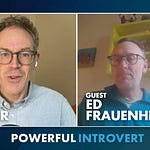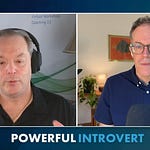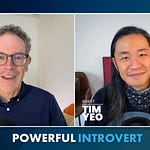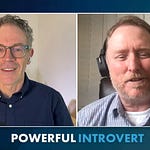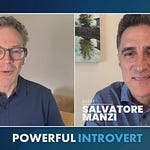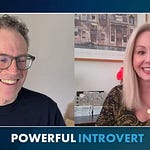Tim Christensen has served as Chief Product Officer—the product and technology leader—at multiple software companies, driving hundreds of millions of dollars in revenue. To anyone who’s met him, he’s outspoken and anything but shy. “I’m often the loudest person in the room,” he says. Yet, he admits, “I almost never look forward to social gatherings.” Sound familiar? Sure enough, Tim consistently tests as an introvert on the Myers-Briggs assessment.
Tim sees limited value in labels like “introversion” but uses personality tests with his teams as tools for self-discovery. He believes they help people better understand and accept themselves. “The tests themselves are just different ways to help you understand who you are,” he explains. For example, they can reveal insights such as: “What triggers me? When do I get emotional? What drives my stress? Why do I procrastinate?”
Tim delivers outsized results by empowering his teams and helping people embrace their strengths. He seeks out individuals who are passionate about personal growth, life, and collaboration—those who are kind, empathetic, and team-oriented. While he doesn’t hire exclusively introverts, he prioritizes balance, ensuring each person plays their role in supporting the team. His leadership style is deeply rooted in authenticity—an approach he’s always found effective. “Also, I suck at faking it,” he adds.
While he recognizes that quick thinking—a skill he possesses—is highly valued in business leadership, Tim is intentionally pushing himself to be a slow thinker. He actively seeks input from the deep thinkers around him and creates space for thoughtful reflection whenever possible. Rather than relying on group brainstorming to generate ideas and solutions, he advocates a different approach. “Don’t do it,” he advises. “Write it down … let people think. That’s good for me. And it’s good for you.”
Let people think. That’s good for me. And it’s good for you.
When asked what drives him to keep pushing, Tim reflects, “Life is short. Who wants their gravestone to say, ‘I made a lot of money’?” Instead, he strives for something more meaningful. “I want to look back and be really proud. How can I be the best father possible? The best provider? What impact did I have? What’s the next thing I want to do to grow?”
His advice for quieter individuals looking to become better leaders is simple: “Find an advocate who appreciates you for who you are.” He cautions against staying in environments where a boss might try to force them into being someone they’re not. “Avoid potentially abusive relationships,” he advises. “Have someone who wants to embrace who you are.”
For Tim, being quiet is no disqualifier for leadership. “If you look at teams, sometimes you have the quiet leaders who are the captains, and sometimes you have the person jumping up and down on the sidelines. They’re both effective—they’re just different.”
He also emphasizes the importance of pursuing leadership for the right reasons. It’s not about thinking, I have great ideas, but rather about being “a great listener” and being driven to help others improve together. “If you’re driven by helping those around you,” he says, “find someone who will appreciate that, and you’ll blossom.”
I hope you all enjoy this interview as much as I did.




